Find your Ikigai in science
Ikigai, the Japanese word translating to “a reason to live”, is a philosophical concept referring to finding a purpose in life. The concept is rooted in Okinawa, a Japanese island where the locals believe that people are rewarded when they pursue things that they are passionate about. This passion is their ikigai and ultimately brings them fulfillment in life. But, how can one find their ikigai in science?
To answer this question, we asked Dr. Sean M. Wu [Figure 1], an Associate Professor of Cardiovascular Medicine at Stanford University in California. Dr. Wu is a physician-scientist whose primary research focuses on identifying mechanisms responsible for human congenital heart disease. He has published over 125 peer-reviewed articles and has over 15 years of experience in training scientists. He kindly allowed us to interview him and learn more about his journey to a career in science, how he found his ikigai, and his vision for the future of young scientists.
Considering the long and challenging career path to becoming a physician-scientist, what experiences in your life led you to pursue this path?
My family originated from Taiwan and both my parents were in education. My mom was a grade school teacher and my dad was a physicist. We came to the States as immigrants when my dad was coming to pursue graduate school. At the time I was about nine, so everything was very new. I didn’t know how to speak a word of English and had not thought much about what kind of career I wanted to go into. Throughout middle school and high school while in San Diego, I was thinking of becoming an engineer to follow in my dad’s footsteps, mostly doing physics and electrical engineering. So, I made the decision to go to Stanford to major in mechanical engineering as an undergrad because it is a good engineering school. Besides schoolwork, ever since I was a kid, I played a lot of tennis and basketball. Since I was nowhere close to having the skills to be a Division 1 athlete at Stanford, I decided to join sports medicine to help the sports trainer on the sideline for the football games. I decided to do this because of my interest in sports, but it actually helped me discover my interest in medicine. So, I took more steps by adding another undergraduate degree in biology while doing research in the field of biomechanics where the focus was on rehabilitating the movement of stroke patients. At some point in college, I decided that I would apply to medical school, but I did not want to give up engineering. I became interested in pursuing a combined MD and PhD program and joined Duke for my MD/PhD training so that I could pursue my passion for biomechanics research while becoming an orthopedic surgeon. When I got into the clinical part of medical school and explored different areas of medicine, I realized that orthopedic surgery was not right for me. Additionally, the more research I was exposed to, the more I realized that there are so many new things to discover through molecular genetics. During the Human Genome Project, people were doing a lot of research on proteins and genetic tools became available, which was very exciting. It is like moving away from the prehistoric medicine of chipping and sawing bones and going into the much more sophisticated, gene-based treatments, and I thought that was really exciting. Since I was at Duke for my MD/PhD training and, in the South, there were just lots and lots of patients with heart diseases (back in the late 1980s to mid-1990s), you could see the devastating impact that heart disease has on people there. At Duke, cardiovascular clinical research was quite dominant, particularly with the Duke Cardiovascular Research Institute, so I was able to get exposed to many aspects of cardiology that made me become much more interested in working on cardiovascular disease as a research topic. I decided to pursue a PhD in receptor biology, looking at lipoprotein receptor regulation of the molecules involved in proteolysis in the blood. This naturally led to going into internal medicine for residency and cardiology fellowship afterwards. That is how I ended up on this path of becoming a physician-scientist in the cardiovascular field. However, the ultimate experience that had made me realize that being a physician-scientist in cardiovascular medicine is what I wanted was when I was a medical student doing my clinical rotation in the ICU. There was one patient who came in and it seemed like she was probably not going to survive because her lungs were failing. I saw one day a physician-scientist came in with an experimental treatment that was not yet approved formally by the FDA but was on an IRB protocol for compassionate use for someone as part of the clinical trial to try to help improve her respiratory function. After receiving this treatment, the patient was then able to start breathing better and become clinically improved. I thought it was pretty amazing that in a hospital a physician-scientist who is doing research at the bench and developing new treatment can bring forth the one thing that is able to save the life of a person who is otherwise going to die from the disease. I think that moment was when I realized that it is a pretty incredible thing to be able to do. To have the skill set to work on a problem, develop the understanding, and come up with a potential treatment in the lab in research and then have the opportunity to come to someone who is in that extreme circumstance of need and offer this thing that you worked on and to see that they are actually rescued by it. Thinking about all the different paths that people could take with their life, going into one where you have the ability and opportunity to save someone’s life is clearly pretty incredible.
Could you describe your role as a physician-scientist in the field of cardiovascular research and elaborate on how being both a physician and scientist is unique?
Being a physician and scientist requires you to switch your mindset - in the clinic you think differently than in a research lab. Then, to some degree, you have to make the connection in your head yourself because very few people, except for those who have had your training in both research and clinical will have a way to quickly connect between the things you see in the lab and the things that you do in the clinic or the other way around. There is the clinical language and there is the research language, and we as physician-scientists are the interpreters. When we speak with the scientists, we can explain to them what the clinical people see and believe are the important things to deal with, and when we talk to the clinicians, we can explain to them the things that scientists are working on that potentially might make an impact. So, I feel like in some ways a physician-scientist is unique for being the interpreter for the two groups.
Would you do anything different in your career path If you could go back in time?
My mindset is always about moving forward, like looking ahead to see what the next thing is to do and not so much looking back to see what I have done and how I might have done it differently. So, with the overall mindset of always looking ahead, to me, I think the only way to approach a career is to be sure that you make the best decision, given the situation, at each transition point and then move on. Therefore, I usually don’t go back to think about what else I could have necessarily done that’s better since there is no way to know. For people who are thinking about what to do with a career as a trainee, you should focus on the fact that you only get one life to live, and you cannot dial back time to try to live another life and see if it is a better one. So, rather than spending a lot of time thinking about “should I have chosen to go to X school vs. Y school”, you make the best decision that you can make and then just move on and try to improve your current circumstance as best as you can. Because, in my mind, if you know ahead of time that there was a better career path than the one you are on and is available to you, then you would have chosen it at the time when you were given a chance to choose. However, I definitely think that people need to make sure they spend enough time assessing their options before making the final decision.
What advice would you give to young students aspiring to become a physician-scientist?
I think everyone has to figure out for themselves what it is that really motivates them. What I or anyone would normally say is: you have to follow your own heart with your interest. If you love to do science, do science, and if you love to be a clinician, be a clinician. To be a physician-scientist, you have to be someone who loves to be the interpreter that I mentioned and love to go back and forth between the clinical and the science and keep both of them, because each one of them is going to take a lot of time in training and I now, just my experience, tell people who wants to be a physician-scientist that they need to spend ten years of training in medicine after college and, separately, 10 years of training in science. If you want to be a physician-scientist, you have to expect to spend 20 years of your life in training and be comfortable with that idea. I can pretty much say that there are not that many people who would be excited about being in this clinical-research translator role if you tell them honestly how many years they need to spend in training.
What are the key components of academic success in your opinion?
In the Japanese ikigai for life success, it addresses important values in life such as doing things that you like, things that you’re good at, things that you spend the most of your time doing, and the fourth one is to do something that also makes a sufficient amount of money. I adapted this concept for academic research scientist careers and discussed ways to balance different elements that are important in a research career [Figure 2]. It is mostly for explaining to someone how to have an academic career that is satisfying if they can optimally balance these four things. Everyone in academia could certainly come up with what they think are the four most important things to balance in an academic career. I think doing research well and having grants are two essential elements for every academic career. However, the other two things, I would say, different people might find different things as important elements. I particularly enjoyed the mentor-mentee relationship and that is the reason why I put that one very prominently as my fourth element. I would hate at the end of my career to have a lot of trainees who hated me because I treated them so badly that they never wanted to see me again. Some people might not find the career strategy part that important. I think there are a lot of aspects of career advancement that do not only involve what you’re doing with your research and your publications. Some of them are being involved in committees, finding the right career to move from one place to another, or even moving up within your institution. There are some politics that go into that aspect. I found that very important to understand how to balance the decision. In my own situation, before I moved to Stanford from Boston, there was the career decision - “do I move or do I stay” - that I had to make. There were many different reasons we moved, but it had been mostly about being with my extended family that led us to make this move. I have many immediate and extended family members in California. So, as my kids were growing up, moving to California meant that they got to have a lot of relatives around growing up together. It means a lot to me to be with family, which drove the decision to move. The career side of the move also relates because in different institutions people function differently. In the Harvard institutions, it’s just a big system. It is hard to move up in the Harvard system when there are so many amazingly talented people to have to compete with. Stanford is a much smaller institution; the number of faculty is like one-fifth of the Harvard faculty, and there is no limit on the number of faculty who can be promoted from a junior to a senior level. In addition, as a smaller institution, everyone knows everyone else. So, there’s more of a feel of a community. Early in my career, being in an environment where people know each other, help each other, and work together in the group was an important change for me. So, on top of the benefit of being closer to family, I decided to make the move. This move was very consequential in my research career development as well, so that is why I put the career strategy part prominently as one of these four different aspects of the ikigai for academic success.
What habits in your life do you believe contributed to your success?
The most successful person is someone who has those ikigai parts aligned; what they are interested in, what they are good at, and what they put the most time and energy into doing. That can be true about anything that you really love to spend your time doing and happen to have an intrinsic skill set. Just think about if all these things are synchronized; you are going to be so effective as an individual, whatever it is that you choose to do. So, my sense is that success, really in the end, has nothing to do with what time do I wake up or how many hours I spend working. Those are mechanics of how people do things that help facilitate doing what they want to do, but I don’t think they are the main driver for success. I think the main driver for success is really figuring out for themselves what exactly it is that they are really interested in doing, truly good at, and what they want to spend the most time doing, beyond making sure that their other needs have been taken care of, like family responsibility, personal health and wellbeing, etc.
Could you elaborate on finding a balance between academics and your personal life?
When I talk to graduate students, I spend a bit of time trying to describe the balance that people need to find for themselves because each person, I believe, balances things somewhat differently. My previous advisors worked all the time. When I trained in their lab and I observed them, I was looking at them working all the time and I was wondering if that is what I want to end up doing in my own life. At some point, clearly the answer was no. One of my former advisors said “I have not taken a day off in the last five years and I’m going to take one day off on Christmas this year”, and I looked at him, thinking that I do not really know - is it really worth whatever it is that this person is doing work every single day of their life and have never taken a day off. Of course, as expected, the person is extremely successful. However, what you see, at least in their generation though, is that there are a lot of people who have had a very difficult family life. They were essentially working all the time and their family never saw them.
My generation of physician-scientists has started to become disillusioned by what that work-life situation is and to start wanting more of a balance. For the people who make the decision to have more of a work-life balance, you are clearly trading off publishing as many papers. You’re not going to rise in academic rank as quickly. You may not be getting all these honors or the awards of this and that, but you have an intact family. Your children get to spend time with you and see you. They know who you are and grow up with a good relationship because you only get to see and spend time with your own children for a relatively small amount of time in their entire lifespan. While it may seem like 18 years is a lot, they grow so fast, and, before you know it, they are gone. My older daughter, who is now about to graduate from college, kind of came into our existence, then went off to college as if it just happened overnight. I’m glad now that I was able to watch them grow up and do as much as I can with them while keeping up with what I need to do at work, without having to sacrifice too much. There is a lot of flexibility with your day to day when you do research. This is one thing that I always tell trainees to think carefully when deciding between a clinical vs. a research career. As a clinician, you just have to be there in the hospital physically; patients need to see a person, so you don’t have much flexibility time-wise. This is one of the main reasons I didn’t choose to become a full-time clinician. It’s also one thing that I feel people undervalue in terms of an academic career vs. other careers such as in industry or government.
What do you enjoy most about mentoring and training young investigators and how do you describe a strong mentor-mentee relationship?
The one thing that I find much more rewarding about academic jobs than working at a company is the ability to mentor trainees who are deeply interested in getting involved in science and doing something with medicine. I don’t think I would necessarily have this type of opportunity to mentor if I were in a company. I find having trainees in your lab is a highly rewarding aspect of my career from a psychological point of view. It means that someone thinks that what you do is interesting and important to want to spend time with you. So, I take that interest very seriously and make sure that they are well trained because it’s a privilege. I need to make sure that I’m training and taking care of each of them, so that they can all be successful, not get left behind in some way because people are not thinking about them and paying attention to what they need. These are the reasons I take the mentoring aspect of my career very seriously. There is something very gratifying about seeing people truly grow and develop and mature as scientists. In the academic setting, you really get to work with people through their transitions from a grad student to a PhD or from a postdoc to a faculty member. Seeing them go through these processes, to me, is the most enjoyable part of a mentor-mentee relationship.
As a mentor, what do you think young investigators should practice in order to conduct successful research, or as some may say, “to do the science right”?
I refer to a list for that [Figure 3]. There is a lot of anxiety that I see in people in training about all the various things on that list, but the one anxiety that I have been finding a particular issue is this idea that, if you do not publish a super high-profile paper like in the journals Cell, Science, or Nature, then there is no science career for you. I find this perception a very damaging one to trainee career development. If you learn how to do science the right way and can come up with an important problem that really needs to be addressed while finding a new creative way to address it, you will end up with very interesting answers that will definitely lead to a publication in a wonderful journal. Other people reading your paper will find it very useful, and they will take it on and continue and build on the work. You want to have a piece of work that other people can build on rather than a super high-profile paper that nobody can reproduce and conclude that everything you’ve done is a total waste of time. There are many really great scientists in lots of institutions who are not necessarily your fancy top five or top ten U.S. News and World Report institutions. So, I think people should try not to get too hung up about getting into the few top institutions or the few top journals in order to have a successful academic career.
Are there any books or other forms of resources that you recommend for young investigators?
There is a very good resource from the Howard Hughes Medical Institute for how to start your own lab. In terms of other books, there are some on improving writing skills. Writing is a skill set that takes a lot of training, and it is such an essential training as an academic scientist to be able to write effectively and convey your message, both with the papers that you publish and for the grants that you are trying to get funded. So, I would definitely encourage people to look into a book like “The Elements of Style” by William Strunk and E. B. White. I myself have continued to keep trying to improve on how to communicate better. Therefore, I spend time looking at books that people write about how to improve their speaking skills. Another very interesting book to read is “The Seven Habits of Highly Effective People”. It is a very popular book that has been out for a long time, and it is from Dale Carnegie. It generally talks about how you should interact with people. So, early on, I found that it was a very useful book that teaches you how to think about what other people are thinking, like put yourself in their shoes and think about what might be their thinking, when you’re interacting and communicating with them. It’s learning to improve your social intelligence, which I think there is definitely a big variation in people’s innate awareness of it. I find that you can learn definitely and train and improve your social intelligence like in most other things. When I was in Boston, I decided to sign up for one of these leadership training courses that is meant to teach you ways to become a better leader. When I got there, I realized the whole training was about how to understand people. I think the message is that, whenever there is an opportunity to learn about leadership, how to work with people interpersonally, you should take the time and learn it, because it will make a huge difference in your career in the future.
DECLARATIONS
Authors’ contributionsThe author contributed solely to the article.
Availability of data and materialsNot applicable.
Financial support and sponsorshipNone.
Conflicts of interestThe author declared that there are no conflicts of interest.
Ethical approval and consent to participateNot applicable.
Consent for publicationNot applicable.
Copyright© The Author(s) 2022.
Cite This Article
Export citation file: BibTeX | RIS
OAE Style
Rouhi L. Find your Ikigai in science. J Cardiovasc Aging 2022;2:18. http://dx.doi.org/10.20517/jca.2022.04
AMA Style
Rouhi L. Find your Ikigai in science. The Journal of Cardiovascular Aging. 2022; 2(2): 18. http://dx.doi.org/10.20517/jca.2022.04
Chicago/Turabian Style
Rouhi, Leila. 2022. "Find your Ikigai in science" The Journal of Cardiovascular Aging. 2, no.2: 18. http://dx.doi.org/10.20517/jca.2022.04
ACS Style
Rouhi, L. Find your Ikigai in science. J. Cardiovasc. Aging. 2022, 2, 18. http://dx.doi.org/10.20517/jca.2022.04
About This Article
Copyright
Data & Comments
Data
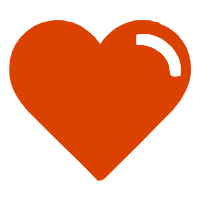
 Cite This Article 7 clicks
Cite This Article 7 clicks



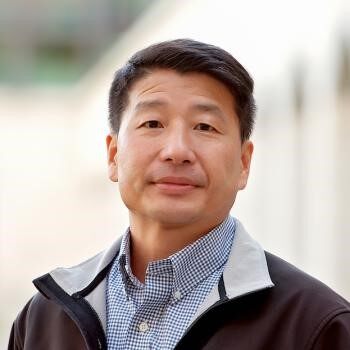
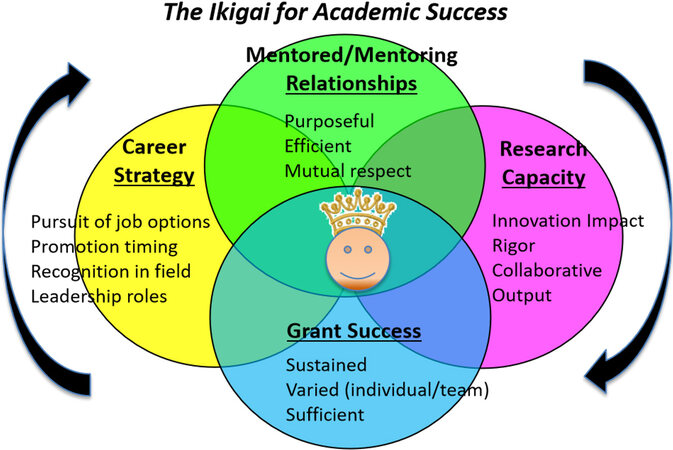
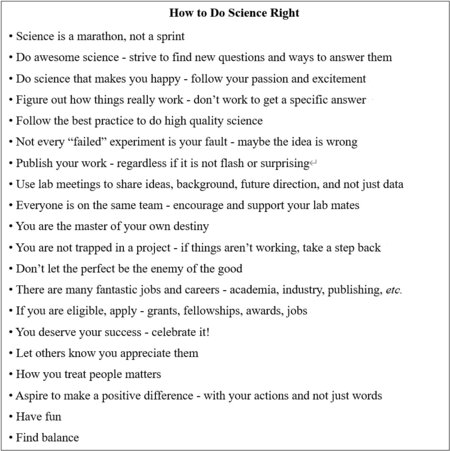




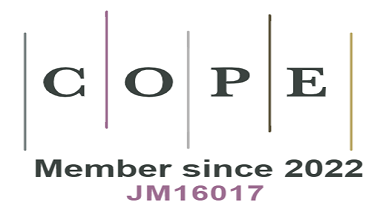



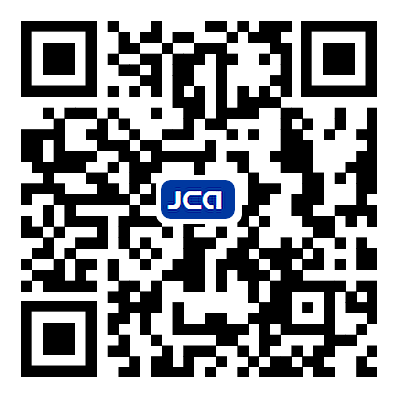
Comments
Comments must be written in English. Spam, offensive content, impersonation, and private information will not be permitted. If any comment is reported and identified as inappropriate content by OAE staff, the comment will be removed without notice. If you have any queries or need any help, please contact us at support@oaepublish.com.